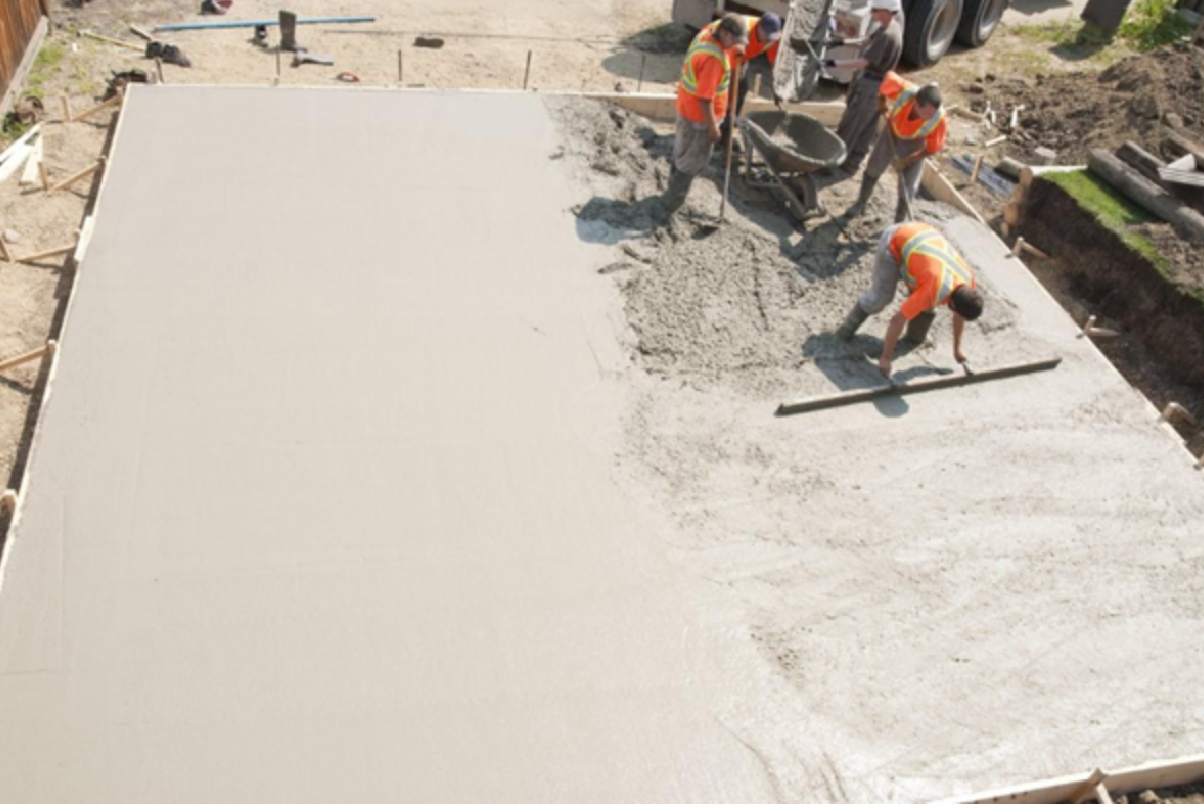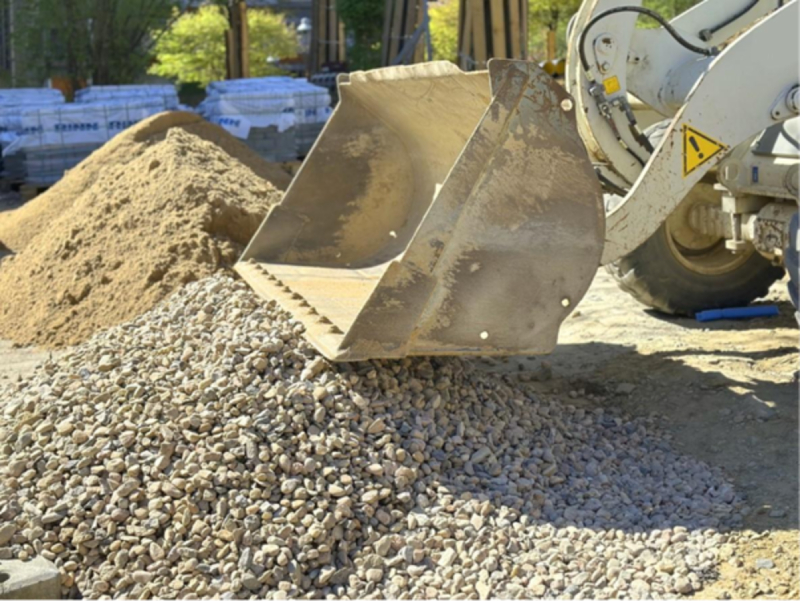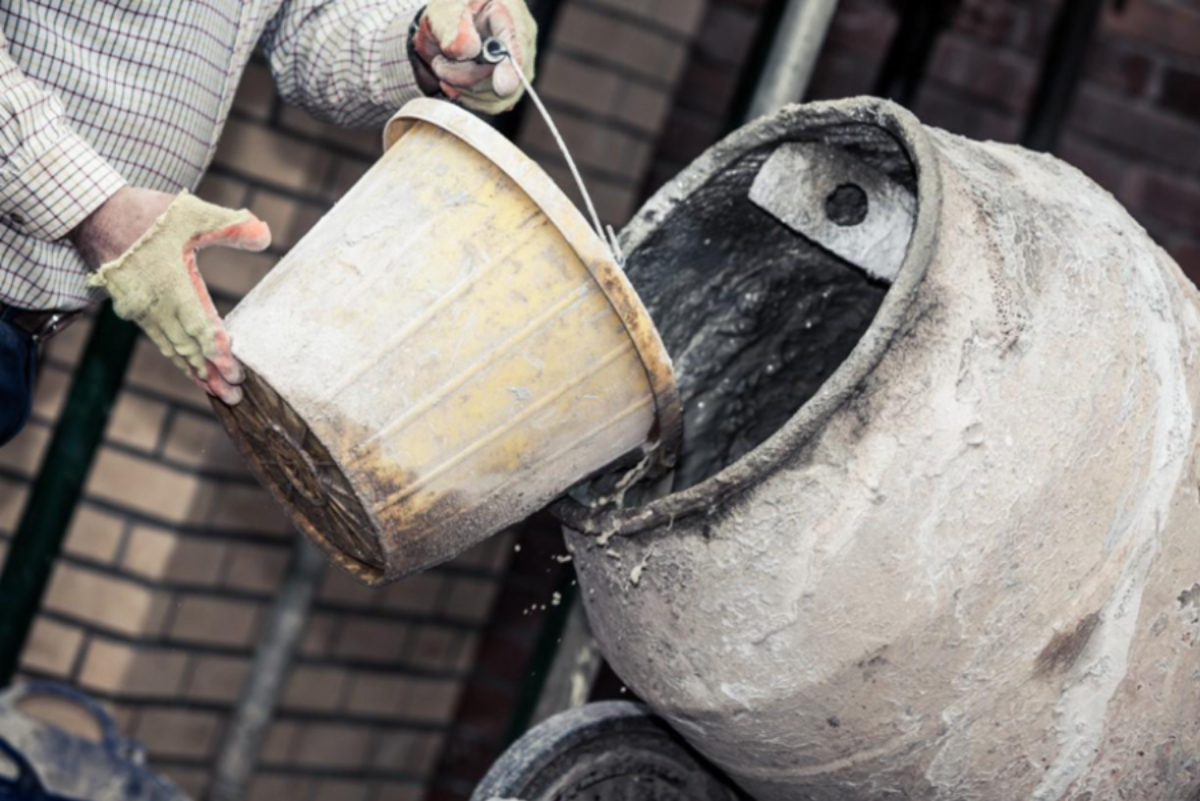
Concrete is a key building material used for a wide range of applications, in construction on both commercial and domestic sites. It can be used to build foundations, driveways, roads, shed bases and more. It is the most widely used construction material in the world—and for good reason. It’s strong, durable, and versatile. But not all concrete is created equal. One of the most critical factors in determining the strength and longevity of concrete is its aggregates.
In this blog post, we’ll break down what aggregates are, explore what the best aggregates for concrete are, and explain how to mix them to create high-quality concrete properly.

The term ‘aggregate’ encompasses a variety of materials, including gravel, recycled concrete, sand, ballast, recycled topsoil, and stone. Aggregates have numerous applications in construction and landscaping, and different types of aggregates are best suited for various purposes. These granular materials are used to create concrete, asphalt, and other building materials, as well as for drainage, on driveways, and in landscaping projects.
Aggregates are usually extracted from quarries using heavy machinery and are then crushed to produce various sizes. At Everytrade Grabs, we supply a wide range of high-quality aggregates across Manchester and Cheshire. Whether you’re working on a large construction site or a smaller home improvement project, we can deliver your chosen aggregates to your location. Fast, flexible and hassle-free!

Choosing the right aggregate for concrete is an essential task to ensure success. The aggregates you use impact the strength, durability and overall performance of your concrete.
If you’re making concrete from scratch, it is usually made up as a mixture of cement, sand, gravel and water. Aggregates make up around 60-80% of a concrete mix, and their size, shape, texture and mineral composition affect the long-term stability and durability of the concrete. This is why it’s essential to pick the right aggregate for your concrete based on its use.
Generally, 20mm ballast is often the go-to option for concrete mixing due to its strength. If you’re looking for a finer or more precise finish, 10mm ballast may be a more suitable choice.
Sand is used to provide bulk and strength to concrete, combining with water and other aggregates to form the solid, durable concrete that is used in so many different applications. It plays a key role as a binding agent, too.
There are, however, a few different options of aggregates for concrete making. Here are the most commonly used and effective aggregates for making high-quality concrete:
1. Crushed stone
Type: Coarse aggregate.
2. Gravel
Type: Coarse aggregate.
3. Sand
Type: Fine aggregate.
4. Recycled concrete aggregate (RCA)
Type: Coarse and fine.
5. Granite or Basalt
Type: Coarse aggregate.
6. Lightweight aggregates (Expanded Clay, Shale, or Slate)
Type: Coarse.

Make sure you have the right safety equipment before you start mixing your concrete. This includes wearing a mask or mouth protection, safety goggles and safety gloves. As previously mentioned, cement is made up of a mixture of cement, sand, coarse aggregate (like stone) and water.
The ratio and material you use to make your concrete will depend on the sort of project you are using it for. If you’re using it to lay foundations for a wall, it will need to be a different mix from what you use to secure fence posts.
A basic, general-purpose concrete mix is usually made up of a 1:2:3 ratio, with 1 part cement, 2 parts sand and 3 parts aggregates. But if you’re mixing concrete for a specific project and are unsure what kind of mix you need, get in touch with our team, and we can advise you on the right aggregates and mix for your needs.
Steps:

Choosing the right aggregates is key to producing durable, cost-effective, and high-performance concrete. Whether you’re pouring a driveway, setting fence posts, or working on a structural foundation, understanding how different aggregates influence the final mix helps ensure long-term success.
Now you know what the best aggregates for concrete are. If you’re ready to start your project, get in touch with Everytrade Grabs to order all the aggregates you need. We supply a wide range of different high-quality Primary and Recycled aggregates, including ballast, sand, recycled stone, gravel and more – everything you need to make quality concrete. If you’re unsure of how much you need or the best options for you, our friendly team is here to help and provide advice and guidance.
We can deliver direct to you, providing a fast, hassle-free service, with same-day or next-day delivery. We service all areas across Manchester, Cheshire and Stockport, and deliver to you and your site, no matter the location. Whether it’s a large construction project or a small DIY home job, we can help. We’re committed to offering a fast, flexible and professional service to meet all your project needs.
Contact us today on 0161 470 0220, info@tdgcontracts.com, or by clicking the WhatsApp button on our site to message directly.